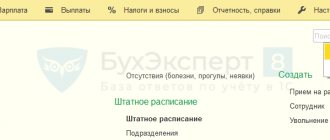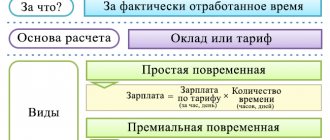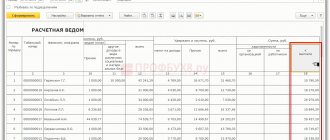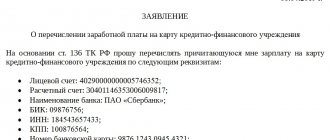The economic crisis has a negative impact on the well-being of the population. Wage indexation in 2022 will make it possible to at least slightly increase the real level of income of people working in the public sector. We are talking about municipal and government employees, whose managers, in accordance with the Labor Code of the Russian Federation, are required to carry out indexation. But is it necessary to index wages in 2020 in commercial organizations? Or should only budgetary organizations increase wages? Is indexation a right or an obligation of an employer? What is the latest news on this indexation for public sector employees? Let's figure it out.
Delicate duty of the employer
The Labor Code contains norms that define possible and mandatory ways to improve people's living standards. Indexation of the minimum wage is one way. If an employee works in a company that is not financed by the state budget, then it is still necessary to carry out indexation, but on the basis of the following documents:
- internal company rules;
- collective agreement;
- agreements.
Remember that ensuring indexation is the direct responsibility of the employer! Moreover, it should immediately affect all employees of the enterprise. Regulatory provisions on wage indexation provide for its mandatory implementation in organizations not only of the budgetary, but also of the extra-budgetary sphere. The difference lies only in some procedural points.
Private firms and individual entrepreneurs themselves determine how to carry out indexation. This gives business owners the opportunity to take into account the interests of not only their subordinates, but also their own benefits.
The procedure for wage indexation
The law does not in any way regulate the indexation process at enterprises and organizations, which means that everything is in the hands of the company’s management. Experts recommend that the first step is to put into effect a document defining the procedure for carrying out this procedure (in the event of inspections by regulatory authorities, its presence will protect the company from possible punishment). It should contain:
- frequency of indexing,
- acceptable size of odds,
- information about which part of the salary is subject to indexation (in most cases this is the salary).
Then, based on this document, at a certain time, the enterprise must issue an order for one-time indexation to all employees. This order serves as a direct instruction to accounting specialists to recalculate wages and payments at newly established salaries and tariffs. At the same time, a corresponding change is made to the staffing form.
For whom is it required?
Many employers deliberately avoid mentioning indexing in their internal documents. They believe that the lack of information about indexation in 2022 is not a violation. Meanwhile, the organization must at least index the minimum wage. Even though there is no legally established procedure for its implementation today. Also see “Minimum wage in 2022 in Russia”.
If they ignore the need for indexation, employers may face unpleasant consequences if labor inspectors come. By the way, further decisions of controllers may be different:
- will be required to enter information about the procedure for indexing wages at the enterprise into a current internal document or to adopt a new act on this in the organization;
- the responsible persons will be held administratively liable in the form of a fine (Article 5.27 of the Code of Administrative Offenses of the Russian Federation).
Note that the second point is controversial. And in case of disagreement with the fine, the employer can go to court. Current judicial practice shows that decisions in such a case can be made both in favor of the employer who applied and in favor of the inspectors.
If an organization has a provision on wage indexation, but the employer does not comply with it, then during an inspection the company may most likely be fined.
As noted by the Constitutional Court of the Russian Federation in Determination No. 2618-O dated November 19, 2015, the wages of all persons working under an employment contract must be indexed.
Employers - state bodies, local government bodies, state and municipal institutions index wages in the manner prescribed by labor legislation and other regulatory legal acts containing labor law norms (Article 134 of the Labor Code of the Russian Federation).
Employers not related to the public sector also do not have the right to deprive their employees of the guarantee provided by law and evade the establishment of indexation (Determination of the Constitutional Court of the Russian Federation dated November 19, 2015 N 2618-O). Such employers index wages in accordance with the procedure established in the collective agreement, agreements, and local regulations (Article 134 of the Labor Code of the Russian Federation).
What else should you pay attention to?
In budgetary institutions, the terms of indexation, as well as its percentage, are established by the Government, relevant ministries or departments. Accountants who work in the public sector must only follow instructions approved by higher authorities.
Commercial companies have different rules. In fact, the employer can independently resolve all issues related to salary indexation. The main thing is to establish the procedure for carrying out indexation normatively, and also to regularly carry out this recalculation. However, there is one caveat. Wage indexing is carried out to fulfill the requirements of Art. 134 of the Labor Code of the Russian Federation, which states that the employer is obliged to ensure an increase in the level of real wages. And this is only possible by increasing the employee’s income by the official inflation percentage.
Example:
The employee was hired in 2022, with a salary of 30,000 rubles. However, in 2022, this amount can buy 4.9% fewer goods and services than in 2022. To ensure an increase in the level of real wages, the amount of remuneration must be increased by at least this 4.9%. If you set a smaller increase factor, the volume of real content will increase, but will not be equal to last year’s figure.
Performers who cooperate with a company under civil contracts do not need to index their remuneration, since we are not talking about labor relations and wages here.
In 2022, the Prosecutor General’s Office may enter the game
You may receive a fine for not indexing your employees' salaries. This is the responsibility of every company (Article 134 of the Labor Code). The prosecutor’s office will now check whether the company indexes employees’ salaries (Order of the Prosecutor General’s Office dated March 15, 2020 No. 196). Previously, only labor inspectors were involved in this, but they are not able to control all companies - there are not enough people. To begin an investigation, prosecutors only need an employee’s statement that his salary is not being increased. If this information is confirmed, prosecutors will forward the information to labor inspectors. They will fine the company up to 50,000 rubles. (Part 1 of Article 5.27 of the Administrative Code). The draft order of the Prosecutor General is already undergoing anti-corruption examination. Therefore, it is worth specifying the indexing order now, if you have not already done so.
How to develop a document
A sample regulation on wage indexation 2022 must contain a detailed algorithm for calculating amounts and the procedure for determining the corresponding coefficients. Usually they focus on one of several indicators established by the state:
- consumer price index (published on the official website of Rosstat of the Russian Federation);
- inflation rate (annually fixed in federal and regional laws);
- growth of the living wage of the working population (established by the Government of the Russian Federation and regional laws).
In addition to the calculation indicators, the regulations must indicate the period and timing (quarterly, salary indexation per year) and other necessary conditions, including:
- record which payments are subject to compensation;
- determine the calculation formula and rules for determining coefficients;
- establish the period from which the new amounts are applied;
- indicate a list of documents that should reflect the results of indexation (regulations on remuneration, staffing, employment contracts, etc.);
- identify the officials responsible for its implementation;
- consolidate the procedure for agreeing on the situation with representatives of the labor collective (trade union).
It is also important to indicate the conditions under which compensation is not provided or will be limited (for example, financial and economic problems with the employer). If they are not included in the text of the regulation, the employer will not be able to unilaterally reduce the amount of compensation or refuse indexation altogether. We recommend a new regulation on wage indexation; it will allow you to focus on proven, correct formulations.
Having completed all the above procedures and approvals, the employer issues an order on salary indexation, with the release of which the provision comes into force from the date specified in it.
After the order is issued, the text of the regulation must be brought to the attention of all employees.
Regulations on wage indexation in the organization: sample 2020
After establishing a new wage level, this fact must be recorded by concluding additional agreements with employees to existing employment contracts.
The procedure for salary indexation
Wage indexation is discussed in Article 134 of the Labor Code of the Russian Federation. However, there is no clear and understandable procedure for wage indexation. Therefore, in commercial organizations, wage indexation is carried out, including in 2022, according to the rules of the collective agreement or from local regulations.
When drawing up a document on the basis of which you will index salaries, you must remember that it must contain the following information:
- The nature of payments subject to indexation.
This usually concerns salaries or tariff rates at the enterprise. Moreover, the employer can index not the entire amount of the salary, but some part of it, limited to a certain amount. For example: the salary is 30,000 rubles, and only 14,000 rubles from it are indexed. The remaining 16,000 rubles are not subject to indexation.
- Indexation period.
The employer can choose the frequency at his discretion (once a month, six months, a year).
- The procedure for determining the wage indexation coefficient.
- The sequence of calculating wages after indexation.
Keep in mind: the absence of any of these points implies a violation of labor laws and entails consequences. This means that simply drawing up an internal document is not enough. It also needs to comply with existing standards. To avoid possible mistakes, it is better to carefully study any example of wage indexation.
If we talk about reality, then in the collective agreement the clause on annual wage indexation is most often included by large companies that have joined industry agreements with such an obligation. For example, such a norm is in the Federal Industry Agreement on Communications and Information Technologies Organizations of the Russian Federation for 2015–2022. The Ministry of Labor invited companies to join it by letter dated May 5, 2015 No. 14-4/10/B-3127.
If we talk about small organizations, a collective agreement is not always concluded. But even if such an agreement has been drawn up, it often either does not contain a clause on salary indexation.
Another option is to provide for a condition on indexation in the Regulations on remuneration.
Specify in the employment contract how you will index
For example, like this:
2.5 The employer undertakes to index the salary based on data from the State Statistics Committee of Russia on the consumer price index.
The employer undertakes to index the salary at least once a year.
With each indexation, you will need to conclude an additional agreement to the employment contract and indicate the indexed salary or tariff rate in it. Example of wording in an additional agreement:
1. In accordance with Art. 72 and 134 of the Labor Code of the Russian Federation, the following changes are made to employment contract No. 1-TD dated February 1, 2022:
1.1. Clause 2.5 of the Agreement shall be stated as follows:
“2.5 The employee is given a salary of 32,000 rubles.”
You can index proportionally all payments under the contract or only individual payments. For example, if you pay a salary (tariff rate) plus a bonus, it is not forbidden to index only the salary or tariff rate.
Vika takes calls and greets visitors. She is paid 30,000 rubles per month for her work as an administrator. The consumer price index has reached 5%, so next year her indexed salary will increase to 31,500 rubles.
Andrey is a sushi chef. He receives 2000 ₽ per shift + a percentage bonus for the number of dishes prepared. The employer stated in the employment contract that he would only index pay per shift, so next year Andrey will receive 2,100 rubles per shift, and the bonus percentage will remain the same.
It is impossible to index the salaries of employees in the same position by different coefficients. This would be discrimination.









